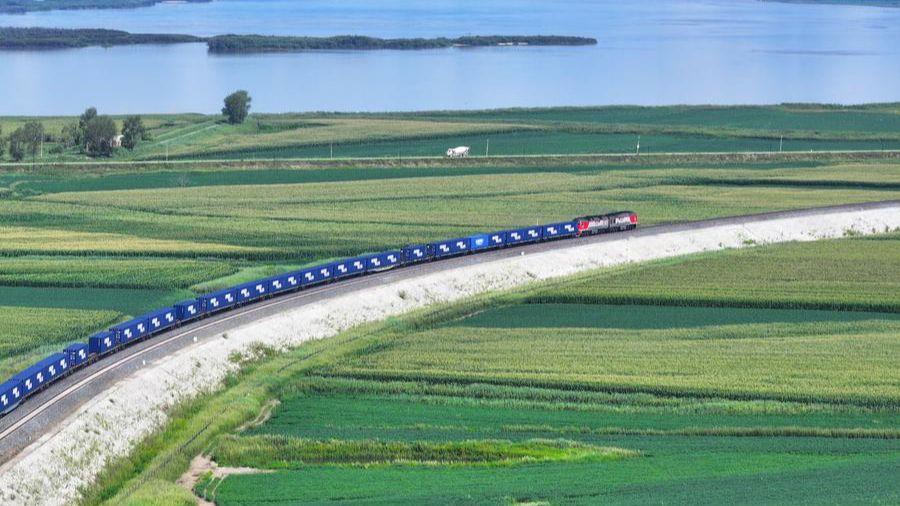MOSCOW, Dec. 12 (Xinhua) -- Countries participating in the China-proposed Belt and Road Initiative (BRI) were offered an opportunity to increase their economic potential significantly, Andrei Ostrovsky, chief researcher of the Institute of Oriental Studies of the Russian Academy of Sciences, has said.
"The BRI is committed to joint development and mutual benefit of participating countries," the expert told Xinhua in a recent interview.
To implement the initiative, China has promoted the establishment of financial institutions such as the Asian Infrastructure Investment Bank and the Silk Road Fund, the professor said, noting that partner countries have thus acquired facilities that they might not be able to build on their own.
He emphasized that these infrastructure projects, owned by the respective governments, are designed for long-term use.
Ostrovsky was particularly impressed by the construction of the China-Laos Railway. He said that Laos had almost no modern railways before, which seriously hindered the country's economic and social development. With China's assistance, the new railway has opened doors to development opportunities for Laos.
In addition to enhancing regional economic integration and infrastructure development, the expert said that the initiative has also helped to expand customs cooperation, facilitate financial transactions, reduce investment and trade barriers, promote local currency settlement, and deepen humanitarian cooperation.
The share of countries participating in the BRI in China's foreign trade is growing steadily and climbed to over 40 percent in 2023, demonstrating that the BRI is effective and has a significant impact, said the expert.
Some European and American experts who were initially skeptical about the BRI have come to acknowledge its role, believing that it has not only promoted the economic development of China and participating countries, but also fostered global connectivity, and facilitated the formation of a unified world market, he said.
"The BRI reflects China's efforts to reform the global governance system and enhance the role of the Global South countries in the world economy," said Ostrovsky.
Amidst the surge of protectionism in Western countries, developing countries need to strengthen cooperation and take all measures to ensure stable and efficient global supply chains, he added.




 A single purchase
A single purchase









